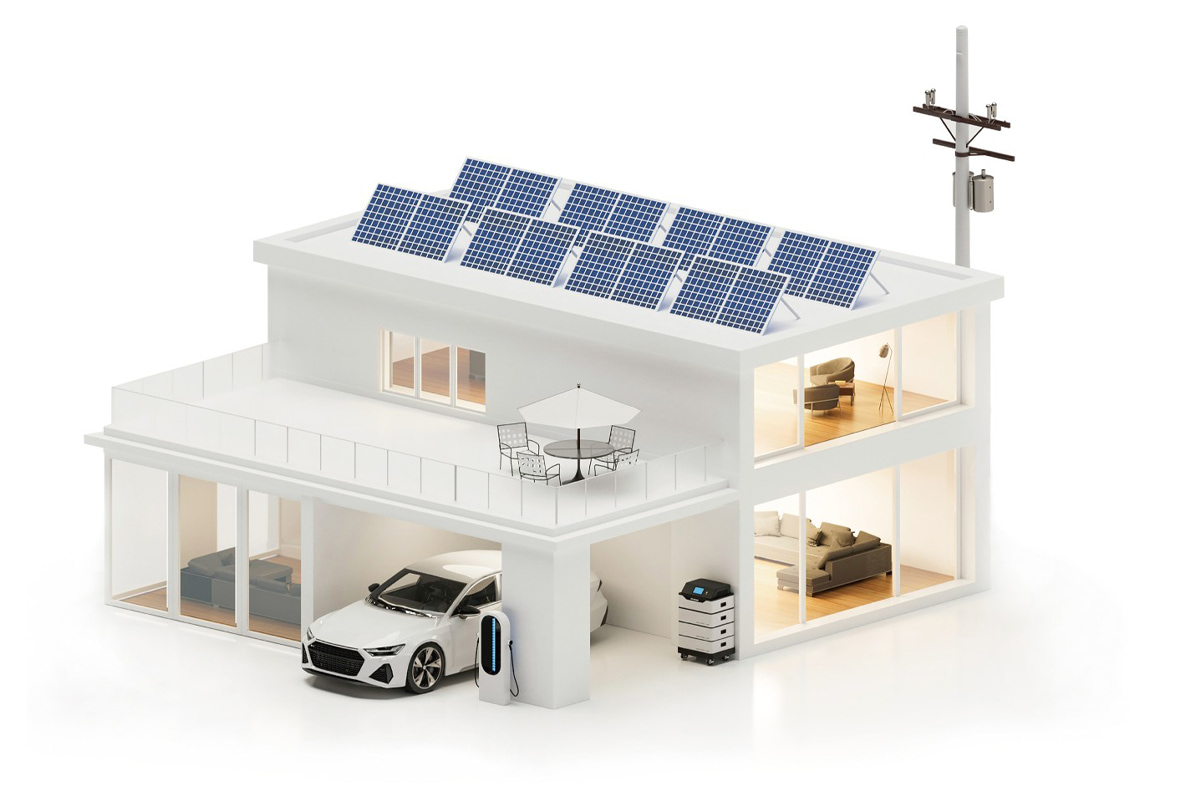Advantages and Precautions of High-Voltage Lithium Batteries in Household Energy Storage
Aug 14, 2024
In recent years, high-voltage lithium batteries have gained significant attention in the field of household energy storage due to their enhanced performance and energy efficiency. These batteries offer several advantages that make them an attractive option for powering homes and backup systems. However, with their increased voltage comes a need for heightened precautions to ensure safety. In this blog post, we will explore both the advantages and precautions associated with high-voltage lithium batteries for household energy storage.
Advantages of High-Voltage Lithium Batteries
1. Higher Energy Density
One of the primary advantages of high-voltage lithium batteries is their superior energy density. Compared to conventional lithium batteries with a nominal voltage of 3.6V or 3.7V, high-voltage batteries typically operate at 3.8V or higher. This increased voltage allows for more lithium ions to be extracted during discharge, resulting in a higher specific capacity and energy density. As a result, these batteries can store more energy in the same physical size, making them ideal for space-constrained household energy storage systems.
2. Extended Usage Time
With their higher energy capacity, high-voltage lithium batteries offer extended usage time compared to conventional batteries. This means that they can power devices for longer periods before needing to be recharged, which is particularly beneficial for households relying on renewable energy sources like solar panels.
3. Stable Discharge Platform
High-voltage lithium batteries exhibit a stable discharge platform, ensuring consistent power output even under heavy load or frequent usage. This stability helps maintain battery performance over time, prolonging its overall lifespan.
4. Excellent Cycle Life
High-voltage batteries often demonstrate superior cycle performance, retaining a significant portion of their original capacity even after hundreds of charge-discharge cycles. This characteristic is crucial for long-term energy storage applications, reducing the need for frequent battery replacements.
Precautions for High-Voltage Lithium Batteries
1. Temperature Control
Due to their higher voltage, high-voltage lithium batteries are more sensitive to temperature fluctuations. Storing these batteries in environments with extreme temperatures can accelerate aging and reduce safety margins. Ideally, they should be kept at temperatures between 15°C and 25°C, away from direct sunlight and heat sources.
2. Proper Charging and Discharging
Overcharging or deep discharging can significantly damage high-voltage lithium batteries. It is essential to use a battery management system (BMS) that regulates charging and discharging to prevent overcharging and ensure safe operation. A BMS can cut off power when a battery reaches its maximum or minimum voltage limits.
3. Storage Conditions
When storing high-voltage lithium batteries, it's crucial to maintain appropriate humidity levels (around 40%-60% RH) and ensure good ventilation to prevent moisture build-up. Additionally, batteries should be stored in a clean, dust-free environment to prevent corrosion and physical damage.
4. Physical Protection
High-voltage lithium batteries should be handled with care to prevent physical impacts or punctures that could lead to short circuits or fires. They should be stored in protective cases or packaging to minimize the risk of damage during transportation or storage.
5. Regular Maintenance and Monitoring
Regularly checking battery condition and performance is vital for ensuring safety and optimal performance. This includes monitoring battery voltage, temperature, and state of charge. If batteries are not in use for extended periods, it's recommended to charge them to 50%-60% capacity to minimize self-discharge and prolong their lifespan.
High-voltage lithium batteries offer significant advantages in household energy storage, including higher energy density, extended usage time, stable discharge platforms, and excellent cycle life. However, these benefits come with the need for heightened precautions to ensure safety during storage, charging, discharging, and maintenance. By following the recommended guidelines and using appropriate safety measures, households can harness the power of high-voltage lithium batteries for reliable and efficient energy storage.